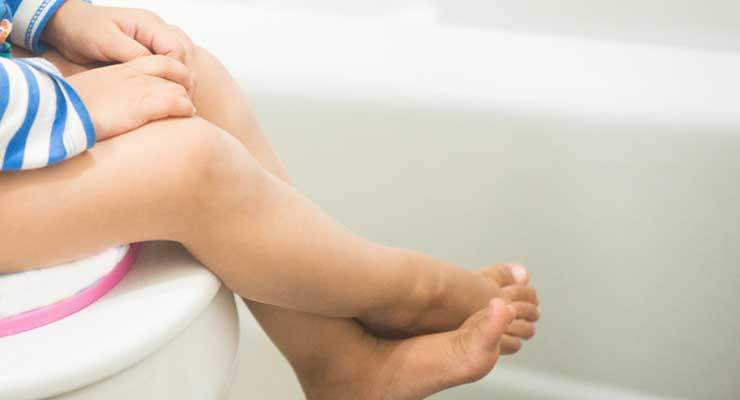Frequent urination may involve output of either large or small volumes of urine each time a toddler goes to the potty. Bladder infections are a common cause of frequent urination, particularly among little girls. Children who are potty trained who suddenly have several accidents may be experiencing an underlying medical cause. In fact, urinary tract infection is one of the most common infections that occur in children.
Toddlers and Frequent Urination
Besides urinary tract infection or UTI, other common causes of frequent urination in toddlers include constipation, irritation of the skin around the vagina or at the opening of the penis, diabetes or not fully emptying the bladder. Vulvovaginitis or urethritis can cause symptoms similar to urinary tract infection. Young children often suffer this condition as a result of not wiping after urinating, or when soap and bubble baths irritate the area. Symptoms can also occur when a youngster doesn’t take the time to empty her bladder completely when she goes to the potty. Diabetes mellitus is another possible cause for urinating more frequently than usual.
Diagnosis
A pediatrician will usually order a urinalysis when diagnosing the cause of a child’s frequent urination. If symptoms indicate that a urinary tract infection may be present, your child’s doctor will order a urine culture in addition to urinalysis. A blood test may be ordered to check a child’s glucose level if diabetes is suspected.
Symptoms
Frequent urination, fever, burning or pain with urination, abdominal pain and the urgent need to urinate may be signs that your child has a urinary tract infection. Urine can appear cloudy or may have an odor. When the skin in and around the vaginal area becomes irritated, a child may suffer symptoms similar to those of a UTI. A toddler who experiences unexplained weight loss urinates more frequently, wets the bed or drinks more fluids and eats more than usual could be diabetic. In most cases of juvenile diabetes, however, symptoms usually do not appear until a child is about 5 or 6 years old.
Treatment
A doctor will prescribe an antibiotic for your child as a treatment for a urinary tract infection. To prevent vulvovaginitis, show your child how to wipe the area after urinating. Also, encourage a child who has a tendency to hold his urine to make a trip to the bathroom every two or three hours. Toddlers who drink a lot of fluids throughout the day may need to urinate more frequently. Restricting how much a child drinks may help to decrease his urine output. Treatment for children diagnosed with Type 1 diabetes includes proper nutrition, monitoring blood sugar levels and the use of insulin.
Prevention
You can do several things to help prevent your child from suffering the symptom of frequent urination. Nationally known medical and parenting consultant Dr. William Sears recommends not allowing your child to take bubble baths or sit in soapy bath water, not having her wear tight underpants that can irritate the urethra and increasing your child’s daily fluid intake. Water helps to flush out the bacteria that cause bladder infections. For an additional preventive measure, encourage your child not to hold in urine. Ask her to try to urinate twice each time she makes a trip to the potty to make sure that her bladder is empty. Teach your toddler how to wipe properly after toileting. Show her how to wipe from front to back, particularly after having a bowel movement.
Pollakiuria
Some children experience frequent daytime urination, which is usually the only symptom of a condition known as pollakiuria. Frequent daytime urination syndrome generally affects children between the ages of 3 and 8 years. A toddler may produce very small amounts of urine each time he goes to the potty but may have the need to urinate up to 10 to 30 times a day. The cause of the condition is not known, and children usually experience no other symptoms. No treatment is required. Symptoms normally go away within a few weeks. In some cases, symptoms may last for about three months.
Toddlers and Frequent Urination






